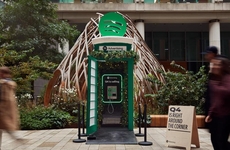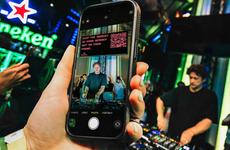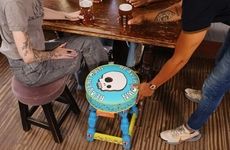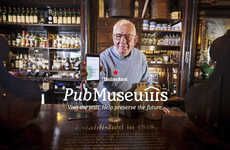
Brussels Tourism Was Promoted by Connecting Internet Users and Locals
Laura McQuarrie — March 1, 2016 — Marketing
References: call.brussels & creativeguerrillamarketing
With international media scaring the public by portraying Brussels as an area rife with terrorist threats, lockdowns and warzones, the 'Call Brussels' tourism stunt was set up to reassure people around the world.
The campaign involved setting up a website, which would allow people from all over the world to ask "How is it today in Brussels?" and have questions like these answered by real locals, or others touring the area via a public phone.
There were people who called Brussels from everywhere from Brazil to Britain, which provided a great way for newcomers to dispel any rumors about the security in the city. In five days, the Call Brussels campaign brought in more than 12,000 calls from 154 countries across the world.
The campaign involved setting up a website, which would allow people from all over the world to ask "How is it today in Brussels?" and have questions like these answered by real locals, or others touring the area via a public phone.
There were people who called Brussels from everywhere from Brazil to Britain, which provided a great way for newcomers to dispel any rumors about the security in the city. In five days, the Call Brussels campaign brought in more than 12,000 calls from 154 countries across the world.
Trend Themes
1. Virtual Tourist Connections - Creating online platforms for tourists to connect with locals virtually can reassure travelers and promote certain cities or regions.
2. Anti-rumor Campaigns - Implementing anti-rumor campaigns that focus on dispelling common misconceptions about certain areas can be a successful marketing strategy for tourist destinations.
3. Public Phone Revival - Reviving public phones and integrating them into tourism campaigns can provide a unique and interactive way for travelers to connect with locals and learn about a city or region.
Industry Implications
1. Tourism - The tourism industry can utilize virtual platforms and anti-rumor campaigns to promote travel to certain areas and dispel negative perceptions.
2. Technology - The technology industry can create online platforms and develop innovative ways to connect tourists with locals, such as through virtual reality or augmented reality.
3. Telecommunications - The telecommunications industry can play a role in reviving public phones and integrating them into tourism campaigns, potentially leading to a resurgence in public phone usage.
1.9
Score
Popularity
Activity
Freshness















